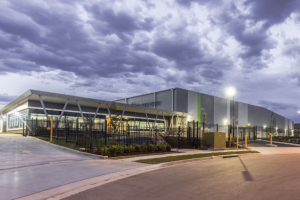Business predictions for 2010

MOST business leaders in the region consider the worst of the recession to be behind them, and are optimistic about business in 2010.
Despite this return of confidence, there is also the expectation that although improved, 2010 will still be a tough year, with a slow a protracted recovery.
Simon Allport, senior partner at Ernst & Young in Manchester, predicts a slow recovery but also warns that relapses are still possible.
He adds that output in the New Year will be “pretty flat”, especially with the end of temporary policy boosts, such as the 15% VAT rate, car scrappage scheme and stamp duty on houses.
“Things will be tough,” he said. “The EY ITEM Club has said that GDP
He added: “All the evidence suggests that this isn’t going to be a strong, consumer led recovery. Weak earnings growth will encourage consumers to rein in non-essential spending, and as consumers seek to rebuild their balance sheets, it is unlikely that the consumer will be able to contribute a great deal to the recovery.”
Brian Colquhoun, North West regional director, for Yorkshire Bank, admits that the last two years have had a “hugely detrimental effect” on many sectors in the region, but added that optimism about the year ahead is important.
“In many cases, confidence will be critical and it will be vital for businesses to hold their nerve in the face of a long and weak recovery. At the same time, it is very important not to get ahead of ourselves as any growth in 2010 will be gradual and there are many potential pitfalls ahead,” he said.
Businessman Gavin Wheeldon, chief executive Oldham-based of Applied Language Solutions, also expects to see business confidence returning, and with the caveat that there are “no catastrophic events over the horizon” thinks businesses will see modest growth in 2010, as the scars of the 2009 recession start to heal.
He added: “We are obviously still at risk from the predicted double dip as a result of ongoing global events, such as the financial crisis in Dubai, so businesses need to remain alert, continue to monitor their costs and be realistic about their growth plans in the coming months.”
David Ingram, managing partner at accountancy firm Moore and Smalley, is also optimistic about the next 12 months.
He said: “I believe we will finally see the first real and tangible signs of a recovery, although I believe we’re a long way from getting to where we were pre-downturn.
“I think we may see some transactional activity start to return in 2010. In the meantime I think accountancy firms will continue to be extremely busy with support services like cash flow management, banking relationships, reviewing and reducing clients’ costs, and forecasts and projections.”
He added that the expects tax advice to be important to businesses over the next year.

He said: “VAT going back to 17.5% from January could have a major impact. Any current growth in the economy could be exaggerated as consumers rush to capitalise on the relatively low rate before the turn of the year. This in effect, could cause a double dip or W-shaped recession before the middle of next year.”
Mr Colquhoun predicts that interest rates will stay low well into next year, but added that with a general election in 2010, there will be other tax rises.
“National debt is at record levels and any new Government may wish to stamp its authority on the economy and start to repay that debt,” he said.
But Phil Jones, sales and marketing director for North West-based Brother UK had a word of warning and said businesses should remember the lessons learned in 2009.
He said: “2009 was the year that trade credit insurance was exposed as a vital
“One of the big take home messages from this and from the credit crunch as a whole has to be that businesses should be kept optimised and streamlined through the good times to help them survive the bad.
“It’s no good getting to a bad patch and then realising things haven’t been run as well as they could have been – businesses need to constantly re-evaluate their practices and procedures to make sure the hatches are permanently battened down – be it fair weather or foul.”








